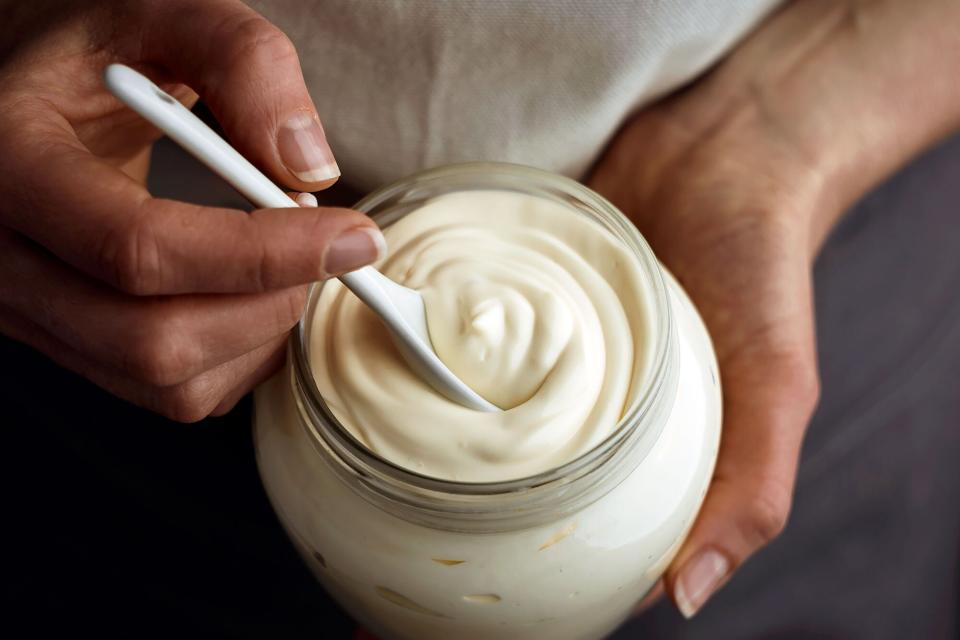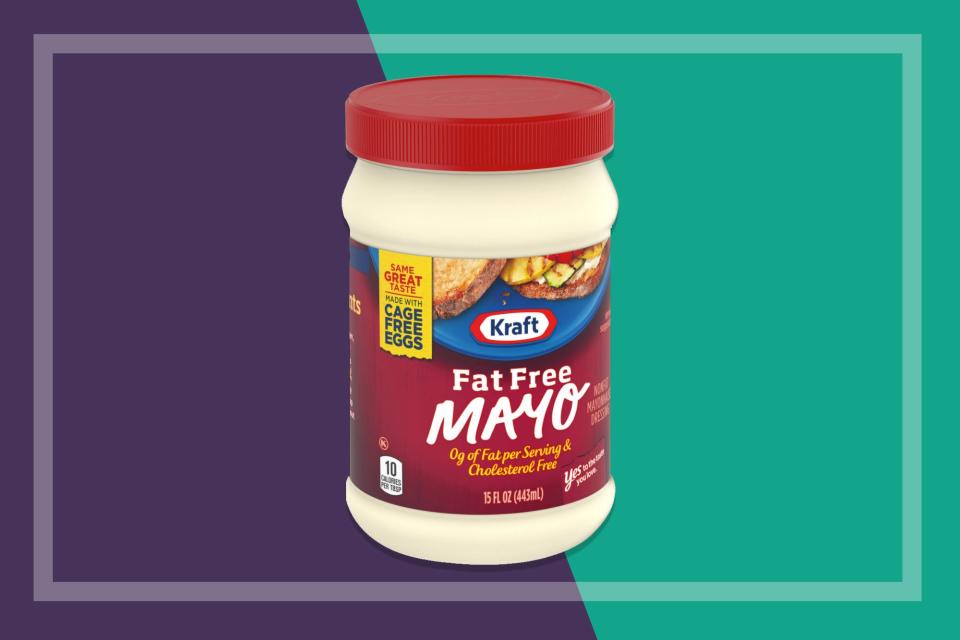Kraft Discontinues Fat-Free Mayo, Admits It Wasn't Very Good
What people consider "healthy" changes over time: Just ask any doctor from the 1940s who recommended a specific brand of cigarettes. In retrospect, the low-fat boom — which peaked in the '90s — was one of these misguided trends. On the surface, the logic seems easy: Too much fat on our bodies isn't great, so sensibly, fat in our food is bad, too, right? But a well-rounded diet is more complex than simply axing fat.

Oleksandr Todorov / Getty Images
As one of the biggest brands in America, Kraft felt the consumer pressure of the fat-free explosion as well, so in 1991, they launched an alternative to their Kraft Mayonnaise: Kraft Fat-Free Mayo. But yesterday, nearly three decades after its launch, Kraft made an admission that was as obvious as it was stunning: Fat-Free Mayo sucks and they are done making it.
"Years ago, everyone was making fat free mayo, and we jumped on the bandwagon … but over the years we came to realize that Kraft Mayo is the only mayo we need," a brand spokesperson said via email. "Kraft is officially discontinuing its Fat Free Mayo. We at Kraft are passionate about mayo and unfortunately our fat free variety just doesn't live up to our standards for what Mayo should be. We know some people are going to be disappointed, and we didn't make this decision lightly but in our heart of hearts, we know it's what's best for mayo lovers across the country."

Kraft Foods
Considering mayo is mostly made of egg yolks — which are mostly made of fat — it's pretty wild that there could be a "fat free" version of the product to begin with. That being said, Kraft Fat Free Mayo was created in response to consumer demand — and its flavor didn't prohibit it from being sold for 28 years. So saying it's being axed simply due to its low quality feels a bit disingenuous. The larger picture here is likely that low-fat diets have fallen out of favor, and Fat Free Mayo probably isn't meeting the demand of a substantial enough audience, regardless of its quality.
A CDC study released last year found that from 2007-08 to 2017-18, the number of U.S. adults on any sort of special diet continued to increase, but the number following a low-fat or low-cholesterol diet decreased — from 2.7 percent down to just 1.5 percent. And keep in mind, 2007 is already well after the low-fat boom had peaked.
So in essence, Kraft Fat-Free Mayo is more of just a nail in the larger coffin of one of the biggest dietary trends of yore. For mayonnaise fans, this is one thing '90s kids remember that they probably won't feel any nostalgia for.

